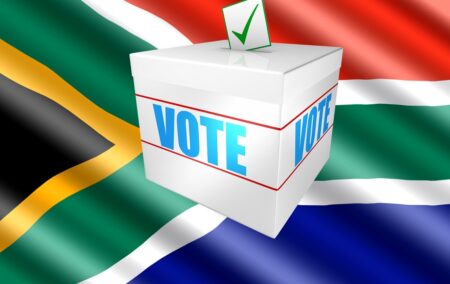I can’t recall ever seeing the term ‘hyper-local parties’ before this week, and perhaps that’s because local politics in South Africa has never been quite as local in so many instances as in the 2021 poll.
And it is doubtless encouraging that, where apathy and disaffection sapped voter enthusiasm on such a significant scale – chiefly, perhaps, in the cities – smaller communities mustered their resources to take a stand against indifference and abuse by local ruling-party administrations which might have thought themselves untouchable.
Colleague Marius Roodt brought out the striking impact of local-interest parties in his piece yesterday, Lessons from Monday’s election, highlighting the following:
‘In Lekwa (Standerton), the Lekwa Community Forum won nearly 20% of the vote, with the ANC being brought down to 42%, having won nearly two thirds in 2016. Elsewhere in Mpumalanga, the Middelburg and Hendrina Residents’ Front (MHRF) gained 11% of the vote in Steve Tshwete, with the ANC on 37%, down from 56% in 2016.
‘In the Free State, the Setsoto Service Delivery Forum won 23% in that municipality (which includes Ficksburg), bringing the ANC down from 61% to 51%. Another Free State municipality, Maluti a Phofung (Harrismith), saw a group called MAP 16 win nearly 30% of the vote, helping to take the ANC down from 67% to 39%.’
These results will doubtless have sent a crisp message to Luthuli House.
On News24, Jan Gerber described the emergence of the Cederberg First Residents Organisation in the Western Cape, which, just five months after setting up shop, entered the hustings as Cederberg Eerste, winning enough votes to earn three seats on the local council, one less than the winner, the ANC, and relegating the DA to third place, with two seats.
‘More jobs’
For me, a telling detail in Gerber’s account is a single quote from Cederberg Eerste’s constitution. ‘Our vision,’ it reads, ‘is to establish a well-run and efficiently managed Cederberg Municipal Region where there are more jobs than people.’
This is an admirable ambition. Yet, without meaning to, it does hint at the inescapable fact that local politics is never wholly local and cannot be detached from a greater policy environment that either stimulates or stifles economic activity, harnesses or hobbles private enterprise, or encourages or impedes solution-seeking.
This is not to downplay the importance of towns and cities being governed soundly or of the impact on people’s lives of basic services being properly managed.
Whatever local or ‘hyper-local’ parties manage to do for their communities, any lasting improvement in the lives of people will depend not only on taps delivering clean water, regular refuse removals, or better local land-use and housing plans but on wholesale reform of national policy that guarantees investment-driven economic growth and the job creation that flows from it.
This will not be possible as long as South Africa’s current policy orientation is retained: overweening statism; cadre deployment; race-based “transformation” measures; ideological hostility to the private sector; corrupting patronage networks; and the reliance on redistributive measures in the vain and contradictory hope of generating wealth and wellbeing.
A real difference
The challenge now facing the many creditably determined and ambitious new local political players will be finding a way to exert their influence beyond the wards and town boundaries of their immediate concern, and – with a view to making a real difference – choosing partners in what South Africans can only hope will be the next big realignment in 2024.
As my senior colleague, John Endres, described it last week, a meaningful national shift is possible if the ‘wild dogs’ of much of the opposition appreciate their collective strength in the contest, and cooperate in the hunt ‘to bring down the old buffalo that is the ANC, together with its little calf, the EFF’.
As Endres noted:
‘Even though the wild dog parties don’t agree on everything, they do agree on many things. Over the next three years, they will have to be reminded of what they have in common, and especially of the shared objective they are pursuing. Along the way they might snap and nip at each other, which is in the nature of wild dogs – but that is not something that should concern the voters, and it shouldn’t distract the parties from the ultimate purpose of their hunt.’
While they deserve every encouragement in tackling the blight and abuse in their local districts, the disparate parties and organisations that have won voter approval for their commitment to renewal should, not least out of self-interest, keep the larger prize in mind – a ‘new united democratic front’, as Endres put it, capable of advancing ‘a compelling alternative vision to the establishment views of the ANC and its offshoot’.
A lot rides on the politicking of the weeks and months ahead.
If you like what you have just read, support the Daily Friend


